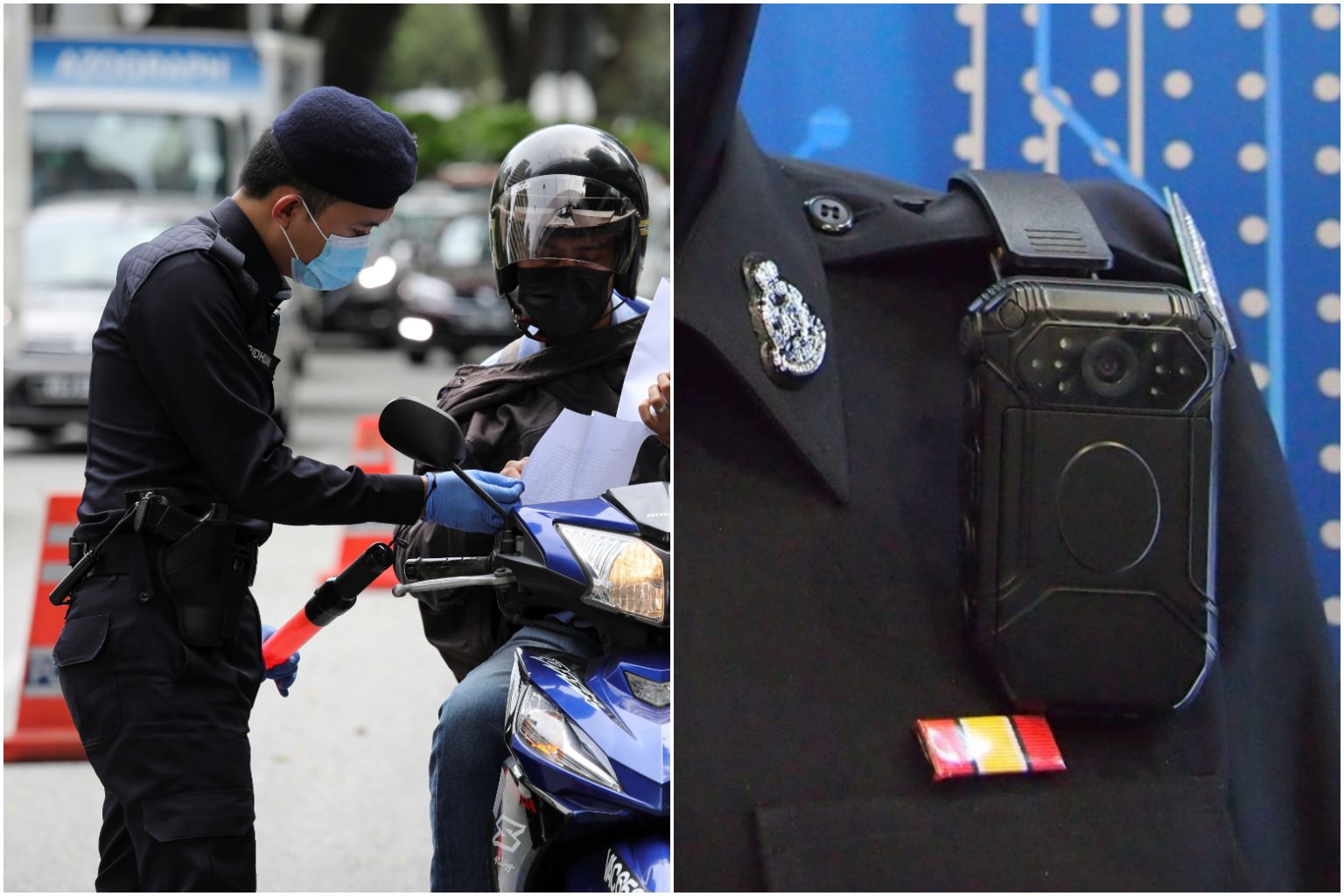Malaysian police to get body-mounted cameras in move to boost integrity
Sign up now: Get ST's newsletters delivered to your inbox

The Malaysian government has approved RM30 million to purchase body-worn cameras.
PHOTOS: REUTERS, THE STAR/ASIA NEWS NETWORK
Follow topic:
KUALA LUMPUR - Malaysia's front-line policemen are expected to be equipped with body-mounted cameras as early as September this year, as the Royal Malaysia Police (RMP) force moves towards improving its services and enhancing its integrity.
Inspector-General of Police Abdul Hamid Bador said the RMP, together with the Home Ministry, is in the final stage of discussions to procure more than 2,100 units of the device, which will be supplied nationwide.
"We have now entered the tendering phase. I believe our men will start wearing them in Q4 - some time in September or October this year," he told The Straits Times.
"The equipment will be used by officers during their patrols or special operations. It will be worn together with a bulletproof vest. We will provide training beforehand."
There are 168 police districts in Malaysia, Tan Sri Abdul Hamid said, and each of them will receive an average of 12 units, which roughly costs RM13,800 (S$4,480) per piece.
The government has approved RM30 million to purchase body-worn cameras, Prime Minister Muhyiddin Yassin said on March 25, adding that the use of the device would also protect policemen from false accusations made by criminals or irresponsible individuals.
Malaysia's plan to introduce body-mounted cameras for front-line officers comes after similar moves in Singapore and elsewhere, including the United States, Europe, Japan, South Korea and Hong Kong.
The RMP is battling allegations of police brutality and the public perception that it is one the most corrupt institutions in the country.
The idea had been previously rejected by lower-ranking personnel, who felt they were being targeted.
According to the Malaysian Bar Council's constitution committee chairman Andrew Khoo, on average, some 18 people have died in police custody every year between 2000 and 2018.
In February, Malaysia was also rocked by a shocking report that a 16-year-old girl had been raped at a police station in Sarawak.
The teenager said she was detained on Jan 8 to help with investigations into an illegal gambling case, but claimed that a male detainee from another cell had opened the door in the early hours and taken her to the police station's toilet to rape her.
The alleged rapist apparently had the key to the teenager's cell. So far, action has been taken against at least 11 senior and low-ranking police personnel in the case.
Mr Abdul Hamid had repeatedly promised that there would be no cover-up in custodial death probes and those involved with corrupt activities will be brought to justice.
The move to introduce body-mounted cameras was first mooted by the previous government in 2019 in an attempt to curb corruption and reinforce professionalism within the force.
The Pakatan Harapan administration had also proposed forming an Independent Police Complaints and Misconduct Commission but that idea was dropped by the succeeding Perikatan Nasional government.
Since taking over in 2019, the top cop has been focused on improving the image of the RMP.
"I don't have much time. What I'm doing now is clearing the path (for my successor) - it has been blocked by overgrown shrubs that are full of thorns along the way," said Mr Abdul Hamid, whose contract expires on May 3, 2021.
"The use of body-mounted cameras can also act as a check-and-balance for us. If it's turned off, why? What are you hiding, what are you trying to cover up?"

